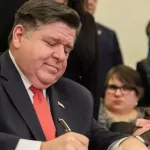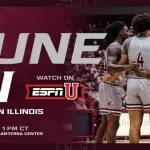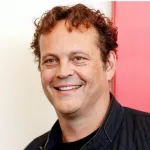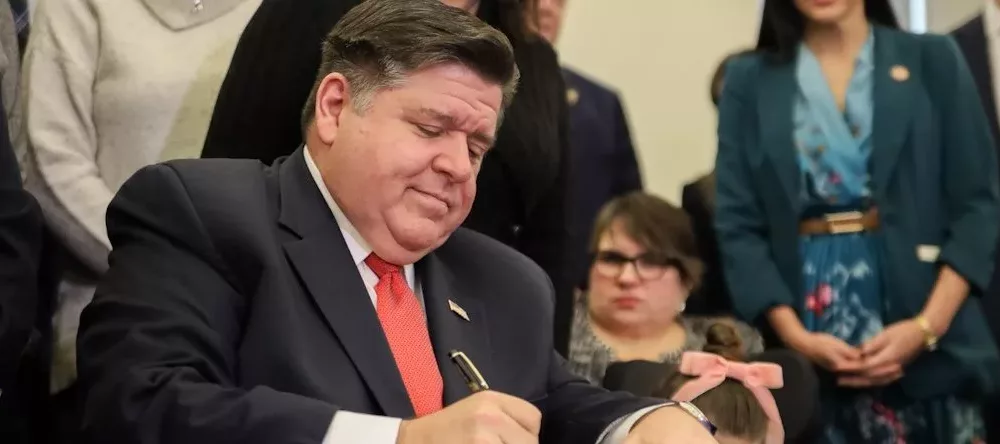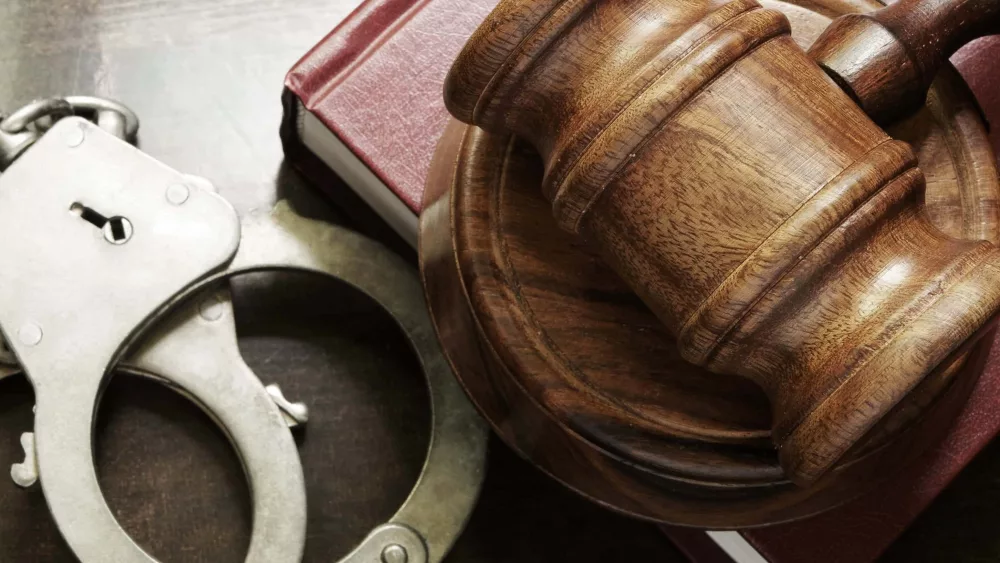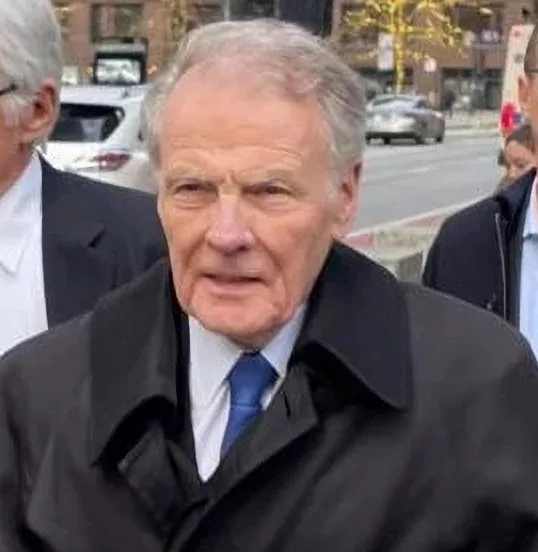
By Jim Talamonti with the Illinois Radio Network
Government attorneys have introduced new witnesses, emails and a barrage of recordings at the corruption trial of former Illinois House Speaker Michael Madigan and codefendant Michael McClain.
After former ComEd executive Fidel Marquez finished testifying Thursday morning, prosecutors played about 20 separate recordings and introduced a number of emails and financial documents. Marquez was the first of nine individuals who reported to the witness box on Thursday.
Six of the recorded conversations involved McClain and former ComEd lobbyist John Hooker. The two discussed ComEd’s dealings with Madigan, as well as various legislative affairs. In a call dated April 13, 2018, McClain and Hooker talked about Madigan’s influence in the potential appointment of then-state Rep. Silvana Tabares, D-Chicago, as a Chicago alderman, which is a position Tabares currently holds.
In a recording from July 2, 2018, Madigan and McClain discussed trying to find a job for the wife of state Rep. Jaime Andrade, D-Chicago.
In a call from August 29, 2018, Andrade and McClain talked about Andrade’s wife preparing to begin her new position with the Illinois Secretary of State’s office. McClain noted during the call, “The Speaker jumped all over it.”
The government called former information technology professional John Gallaher from ComEd parent company Exelon to testify Thursday afternoon. Gallaher testified that he was asked to conduct searches for the names Ray Nice, Frank Olivo, Ed Moody and Michael Zalewski. Nice and Moody were campaign workers in Madigan’s 13th Ward Democratic Organization. Olivo was alderman of the 13th Ward. Zalewski was a former Chicago alderman whose son, also named Michael Zalewski, was an Illinois state representative.
Marquez testified last week that Nice, Olivo, Moody and Zalewski were all paid by ComEd through contractors, even though they did little or no work.
When prosecutor Julia Schwartz asked Gallaher if he found any ComEd payment records related to the four individuals, Gallaher answered, “I found none.”
When asked to search for former state Rep. Eddie Acevedo, D-Chicago, Gallaher said he did find four payments from 2012 to 2015 for Citizens for Eddie Acevedo. Gallaher noted that the payments were campaign contributions. Gallaher said he did not find later records related to Acevedo, although Marquez had testified that Acevedo was getting paid by ComEd through a subcontractor.
Prosecutors then called Tracy Favre, principal business analyst for ComEd’s governmental affairs office in Springfield, to testify. Favre said she attended regular Tuesday meetings involving contract lobbyists and members of ComEd’s legislative affairs division. Favre testified that Nice, Olivo, Moody and Zalewski did not attend the external lobbyist meetings and that she was not aware of them doing any work for ComEd. Favre said that contract lobbyist Jay Doherty also did not attend the meetings. Marquez had testified that several of the subcontractors were paid by ComEd through a contract with Doherty’s consulting company.
Favre said there were times when she was asked to amend lobbyist contracts. In a request from Marquez, she was asked to adjust contract payments to reflect that Acevedo would be paid by lobbyist and former Madigan campaign staffer Shaw Decremer’s company instead of by Roosevelt Group, which was associated with Madigan ally Victor Reyes.
Exelon Director of Corporate Accounting Elizabeth Lynch testified about budgets and general ledgers, including payments to vendors and lobbyists.
Prosecutor Julia Schwartz displayed invoices and records of payments to lobbyists. Lynch testified that the documents indicated that payments to Doherty’s firm came from the office of ComEd’s CEO. Lynch said that there was no indication of payments made to subcontractors.
Lynch testified about invoices involving Shaw Decremer and the absence of information about increased payments to Ed Moody or any information about subcontractors.
Schwartz also introduced financial records involving ComEd’s dealings with John E. Bradley Law Firm. Bradley is a former Illinois state representative and longtime Madigan ally. Once again, Lynch testified that there was no evidence of payment to subcontractors.
Finally, Schwartz introduced ComEd records dealing with McClain’s firm, Averkamp and McClain, which also showed no evidence of subcontractors.
The next witness, FBI Special Agent Michael Borkan, described executing a search warrant at the home of Michael Zalewski on Chicago’s Southwest Side on May 14, 2019. Borkan testified that agents found no evidence related to work performed by Zalewski for Doherty.
FBI Supervisory Special Agent Michael Fee followed Borkan to the stand and testified about a search of Olivo’s home, also on May 14, 2019.
Fee said the agents found invoices from Olivo to Jay Doherty for services rendered to ComEd. Fee confirmed that each invoice was for $4,000 and that several of the invoices were dates after the day the search occurred.
Olivo’s son-in-law, public accountant Patrick Comiskey, said he first met Olivo when he was Chicago’s 13th-Ward alderman. Comiskey said he was not aware that his father-in-law had any other employment while he was an alderman, although he did say he sent Olivo’s invoices to Doherty’s company.
The government’s next witness, FBI Special Agent Brent Potter, was part a team which executed a search warrant at the City Club of Chicago offices in the Wrigley Building on Michigan Avenue. Potter described how the FBI found Ray Nice’s invoices for “client services, Com Ed.” He also confirmed the finding of a $5,000 check from Jay Doherty to Nice. Potter said agents found no evidence of work performed by Nice, Olivo, Moody or Zalewski.
FBI Special Agent Jody Blau, the final witness called Thursday, testified about a search warrant and interview with Ray Nice’s daughter at a Southwest Side home. Blau said agents found an invoice from Ray Nice Business and Consulting and Nice’s lobbyist registration records, which included the amount of $30,000 for “talking to county officials as requested by ComEd.”
Marquez finished his testimony earlier after spending parts of six court days in the witness box. Marquez agreed to cooperate with government investigators and pleaded guilty to bribery in 2020. He also testified as a cooperating witness in the ComEd Four trial last year.
McClain, former ComEd CEO Anne Pramaggiore, Hooker and Doherty were convicted of conspiracy, bribery and willfully falsifying records in May of 2023.
On Thursday, prosecutors reintroduced the transcript of a recording dated February 7, 2019, during which McClain explained to Marquez that ComEd did not need to worry about subcontractors doing nothing for the utility while ComEd was paying Doherty for their services.
“It’s a favor. It’s a Doherty contract, so Doherty’s the one that has to prove that if the IRS ever comes in and says, ‘Who are these guys and what do they do?’” McClain said on the recording.
Marquez expressed concern that then-ComEd CEO Joe Dominguez, a former government attorney who had recently been hired by the utility, would not react well to ComEd paying Doherty for subcontractors who did little or no work.
“At that hour, if he’s got his ex-prosecutor’s hat on, he’s gonna say, ‘We can’t do this, right?’” McClain asked.
“That’s right, that’s a possibility. And in his conversations with his staff, he brings that up often. Former prosecutor, former prosecutor, former prosecutor,” Marquez responded.
Marquez testified Thursday that, aside from Madigan, other public officials did not request work for associates who did no work. Marquez said no other public official was as powerful as Michael Madigan.
Madigan attorney Tom Breen reiterated questions regarding a 2022 court order finding Marquez in civil contempt for not paying his wife as mandated during divorce proceedings. Breen also asked Marquez to confirm his false answers on an application for a firearm in Arizona earlier this year.
In redirect testimony with government attorney Amar Bhachu, Marquez said that he testified against Pramaggiore, Hooker and Doherty in prior proceedings. Marquez added that he was prepared to testify against ComEd if called to do so.
Marquez’s statements followed an earlier discussion about admissible statements involving previous cases. Judge John Robert Blakey ruled that facts and charges in those cases would be admissible, but he said that Marquez could not reveal the outcomes of those cases.
Former Assistant U.S. Attorney Patrick Collins prosecuted the case against former Illinois Gov. George Ryan. Collins told The Center Square that the government still has the burden of proof in the Madigan case.
“You’re going to have this tension between this mountain of circumstantial evidence and the lack of direct evidence and I think that, as I see it from 50,000 feet, that’s the particular challenge for the prosecutors in this case,” Collins explained.
Government attorney Diane MacArthur indicated Wednesday that the prosecution was expecting to call former Chicago City Council member Daniel Solis to testify sometime next week. Solis served as 25th Ward alderman from 1996 to 2019. He began cooperating with investigators in 2014.
After lunch Thursday, Blakey asked Madigan’s attorneys for a revised estimate of the trial’s length. Blakey had asked attorneys from all parties involved for a revised estimate last week and suggested that the earlier 11-week estimate is “wildly off.” Blakey said his math indicated about 14 weeks of testimony, not including a defense case or deliberations, and he suggested that the court needed to advise jurors.
Blakey added that it was his expectation that the court would not be open during Christmas week.
United States of America v. Madigan et al is scheduled to resume Tuesday at the Everett McKinley Dirksen U.S. Courthouse in downtown Chicago.


